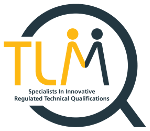
The Wild Ways — Endorsed Programme
About The Wild Ways
The Wild Ways supports families raising neurodivergent children by prioritising autonomy, connection and co-regulation over compliance. Their approach is relationship-led and nervous-system informed: walking alongside families, listening rather than “fixing”, and creating safety without behaviourist control.
Programme we’ve endorsed
Therapeutic Non-Violent Resistance (TNVR) for Neurodivergent Families (incl. PDA) is a practical, trauma-informed parenting programme focused on sustainable change at home, not academic assessment. Participants build calm presence, strengthen co-regulation, and use structured tools to reduce conflict and repair connection.
By the end, parents/carers will be able to:
-
Reframe their parenting lens towards dignity, presence and connection.
-
Recognise triggers and apply polyvagal-informed self-regulation.
-
Use practical co-regulation strategies before, during and after meltdowns.
-
Set healthy, non-punitive boundaries that protect well-being and respect autonomy.
-
Create personalised tools (e.g., Letter from the Heart; red/amber/green prioritisation).
-
Build supportive family/community networks to sustain change.
Why endorsement (not Ofqual-regulated)?
This is a therapeutic parenting course, not an RQF qualification.
Endorsement preserves accessibility for stressed or trauma-impacted families by avoiding unnecessary assessment, while still giving referrers confidence in the programme’s quality and purpose.
What our endorsement means
-
The programme content, delivery intent, and outcomes have been reviewed by our awarding body team.
-
Learners who complete the programme receive a TLM-endorsed certificate of completion.
-
Endorsement recognises provider quality and programme design; it does not constitute an Ofqual qualification and therefore does not require individual learner assessment or moderation that would add an unnecessary additional layer of complexity.
Who it’s for
Parents and carers of neurodivergent children (including those with a PDA profile) seeking relational, non-punitive strategies grounded in trauma and neurodiversity-informed practice.

